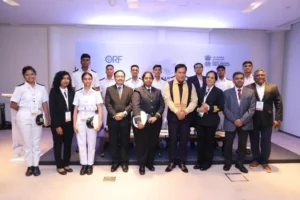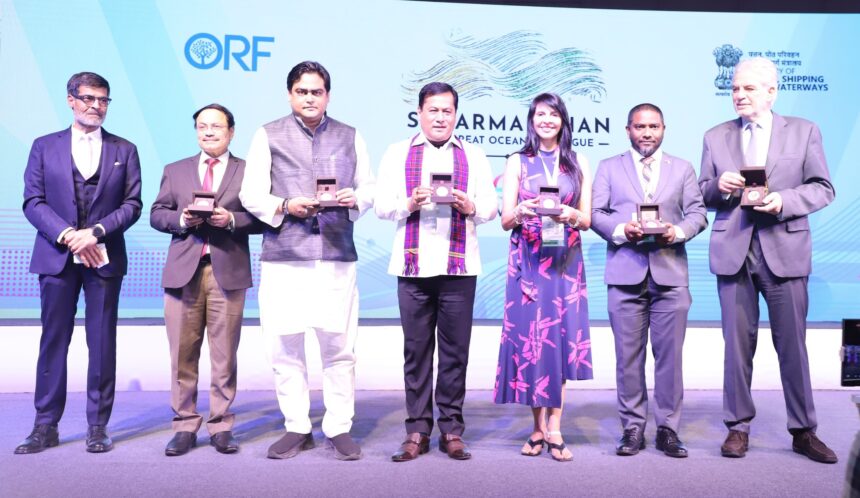New Delhi || 20-11-2024 The first edition of ‘Sagarmanthan: The Great Oceans Dialogue’ held from November 18 to 19 in New Delhi, this landmark event is South Asia’s largest maritime thought leadership forum. Organized by the Ministry of Ports, Shipping and Waterways (MoPSW) in partnership with the Observer Research Foundation (ORF), Sagarmanthan offers a premier platform for global leaders, policymakers, and visionaries to share insights and shape the future of the marine sector.
Sagarmanthan is designed to facilitate in-depth discussions on key aspects of the blue economy and maritime governance. Its structure revolves around four interconnected themes, each addressing critical challenges and opportunities shaping the future of the oceans.
Addressing the gathering Chief Guest Sarbananda Sonowal, Minister of Port, Shipping & Waterways said “More than 800 projects worth ₹ 5.5 trillion are being executed under flagship Sagarmala program and proposed of investment of ₹ 80 trillion under Maritime Amrit Kaal Vision 2047 for enhancing port capacity, promoting inland water transport and coastal shipping”.

With critical themes spanning the blue economy, global supply chains, maritime logistics, and sustainable growth, the dialogue aims to chart a bold, actionable course for a vibrant and future-ready maritime ecosystem.
India’s map of maritime legacy is 7,500-kilometer coastline, which anchors 12 major ports and over 200 minor ones. Positioned along the world’s busiest shipping routes, India is not just a key trading hub but a rising global power.
In 2023, the nation contributed 16 percent of global growth, and according to some estimates, it is on course to become the third-largest economy within the next three years. India in the global stage is rising because of its maritime sector emerges as a keystone for commerce, connectivity, and international cooperation.
India’s maritime sector serves as the backbone of its trade and commerce, handling around 95% of the country’s trade by volume.

As the sixteenth-largest maritime nation in the world, India occupies a key position on global shipping lanes. Most cargo ships traveling between East Asia and destinations like America, Europe, and Africa traverse Indian waters, highlighting the nation’s strategic importance.
The sector’s contributions extend beyond trade. India boasts a fleet of 1,530 ships sailing under its flag till 2023, a testament to its growing presence in global shipping.
Additionally, the country is the third-largest in the world in terms of ship recycling by tonnage, underscoring its role in sustainable maritime practices and the global supply chain. This prominence complements the nation’s efforts to modernize and expand its port infrastructure.
Major ports increased their annual cargo-handling capacity from 871.52 million tonnes to 1,629.86 million tonnes, reflecting an impressive growth of 87.01% in last 10 years.In the financial year 2024 alone, Indian ports managed 819.22 million tonnes of cargo, a 4.45% rise from the previous year.
This growth aligns with a surge in merchandise exports, which climbed to USD 451 billion in Financial Year 2023 from USD 417 billion the year before.
The Indian Government has played a crucial role in fostering this growth. Policies such as allowing 100% Foreign Direct Investment (FDI) under the automatic route for port and harbour projects and offering a 10-year tax holiday to enterprises engaged in port development have bolstered the sector. These measures, combined with the nation’s expanding trade networks, position India’s maritime industry as a cornerstone of its economic ambitions.





